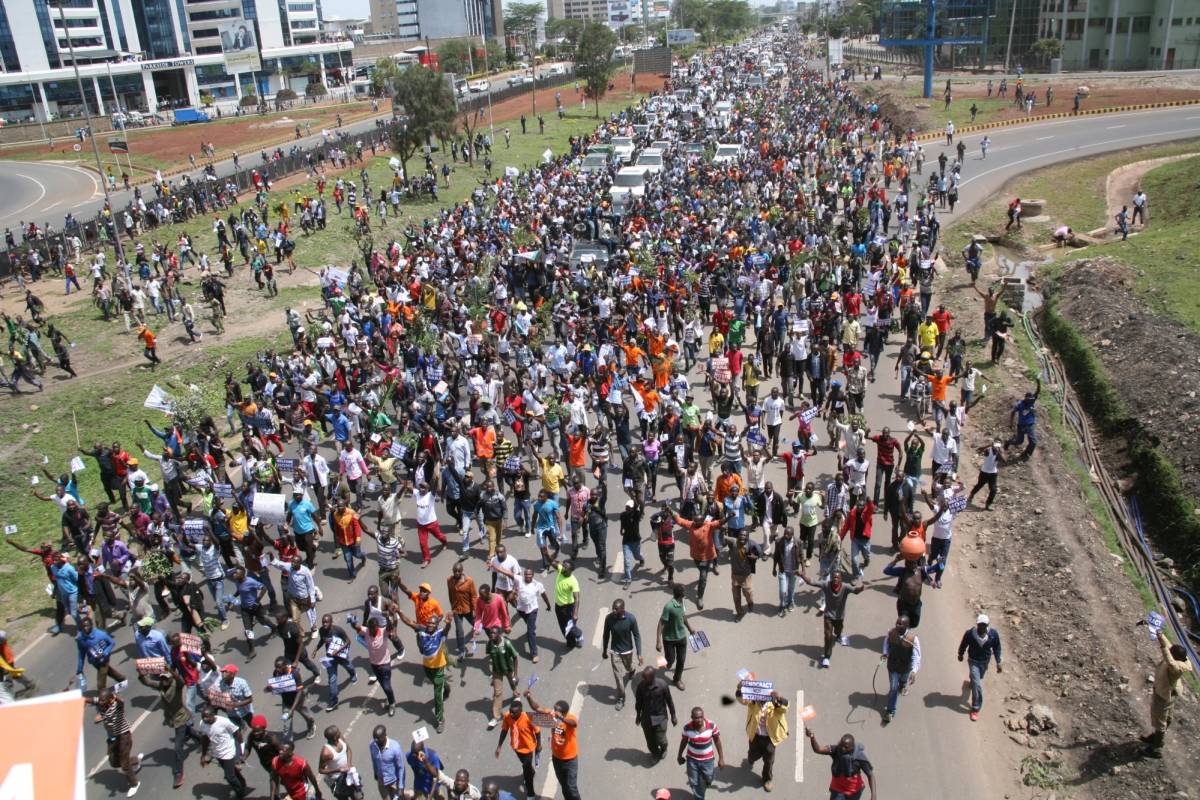Kenya has been hit hard by an unprecedented fuel shortage that is threatening to grind the country’s economy to a halt…reports Asian Lite News
The crisis has seen a number of oil marketing stations shut down, tens of travellers and motorists stranded, prices of goods going up across the country and public transport vehicles grounded.
Thousands of jobs and businesses are at stake as citizens feel the pinch of the shortage that has lasted for about a week, Xinhua news agency reported.
Andrew Kamau, the Principal Secretary of the Ministry of Petroleum and Mining, attributed the crisis to the delay in the payment of 13 billion shillings (about $112.95 million) subsidy funds to oil marketers by the government.
“This crisis is about the money owed to oil companies by the government, which will be paid this week,” he told journalists in Nairobi, Kenya’s capital, on Sunday.
Kenya introduced a fuel subsidy scheme on April 14, 2021, that sees the government pay oil marketers a certain percentage of fuel costs to cushion the public and stabilise the market. The subsidy was effected as part of efforts to bring down the high cost of basic items.
It has helped to keep the prices of gas, kerosene and diesel in the past year stable, with a litre of gas and diesel in the capital Nairobi having risen by 4 US cents in March after four months of remaining unchanged to stand at $1.17 and $1, respectively. While the actual rise in gas price for instance was 17 cents in March, the government subsidy helped cushion Kenyans.
Joseph Karanja, the Chairman of Kenya Independent Petroleum Distributors Association (KIPEDA), said the delay in paying oil marketers has seen many of them with no money to buy new stocks.
“There is no oil for our members to transport to different outlets across Kenya. We have visited many of them since last week and they had no fuel. The crisis is getting worse by the day,” he said in a recent interview.
Even as the country reels from fuel shortage, Macharia Irungu, the Managing Director of Kenya Pipeline Corporation, however, said on Saturday in a statement that the East African nation has enough stocks.
Irungu added that the government agency that sells fuel to marketers had as of Saturday 69 million litres of super gas, 94 million litres of diesel, 13 million litres of kerosene and more than 23 million litres of jet fuel.
“Our global stock holding is adequate to serve the region with more ships queued at the port of Mombasa for discharge,” he said.
The fuel crisis has come at the worst time for Kenyans when many are grappling with rising inflation as prices of basic commodities like cooking oil, bread and milk hit the roof.
Moses Kamau, a digital taxi driver, said on Monday that the taxi sector is among the worst affected, as drivers have to hop from one fuel station to another in search of the commodity. And even when they find it at the selected stations, they have to endure long queues, with some stretching for kilometres, which are eating up into their work time and they are only allowed to buy specific litres.
In rural Kenya, where the fuel shortage has lasted longer, citizens are buying a litre of gas for up to $1.7, 40 cents more than the official government price.
ALSO READ: Kenya to destroy 840k expired Astrazeneca Covid-19 vaccine doses
Motorists and motorbike taxi operators are spending up to eight hours at fuel stations waiting for the commodity.
“On Sunday, I waited at a fuel station in vain from 10 a.m. to 6 p.m. for fuel after the dealer promised a delivery vehicle was coming,” said Joseph Musumba, a primary school teacher, who runs a motorbike taxi over the school holiday.
“I have been forced to keep my bike in the house because there is no fuel.”
His predicament is shared by thousands of other people, many of whom are thronging fuel stations with jerricans in search of the commodity after their bikes and vehicles run out of fuel.
With Kenya’s economy being fuel-driven, the crisis portends bad times for citizens. The World Bank and the National Treasury project the country’s economy would grow by at least 5 per cent boosted by recovering economic activities as Covid-19 effects wane locally and globally.

Leave a Reply